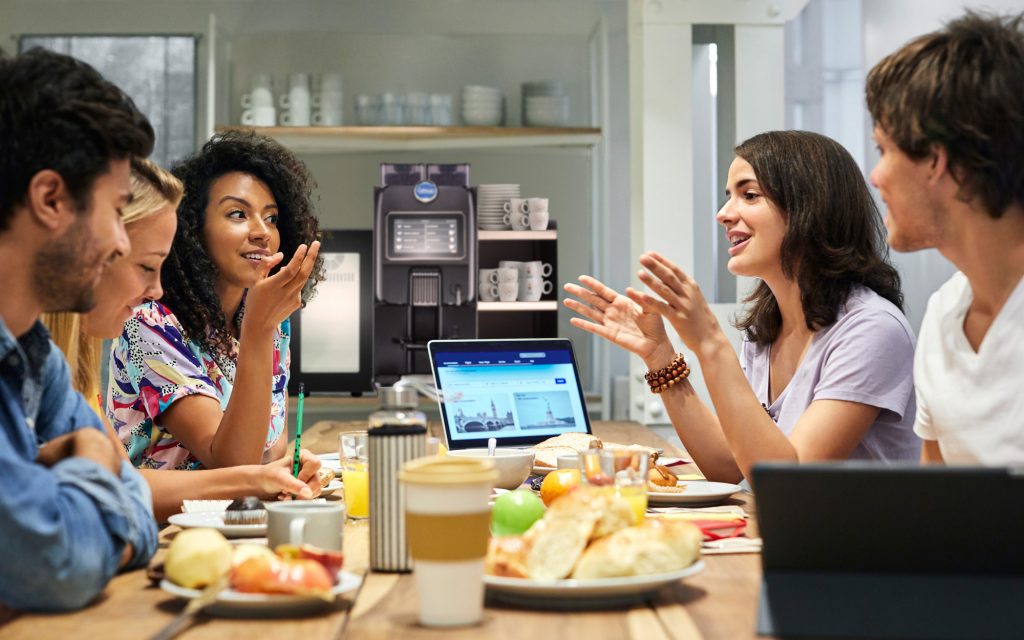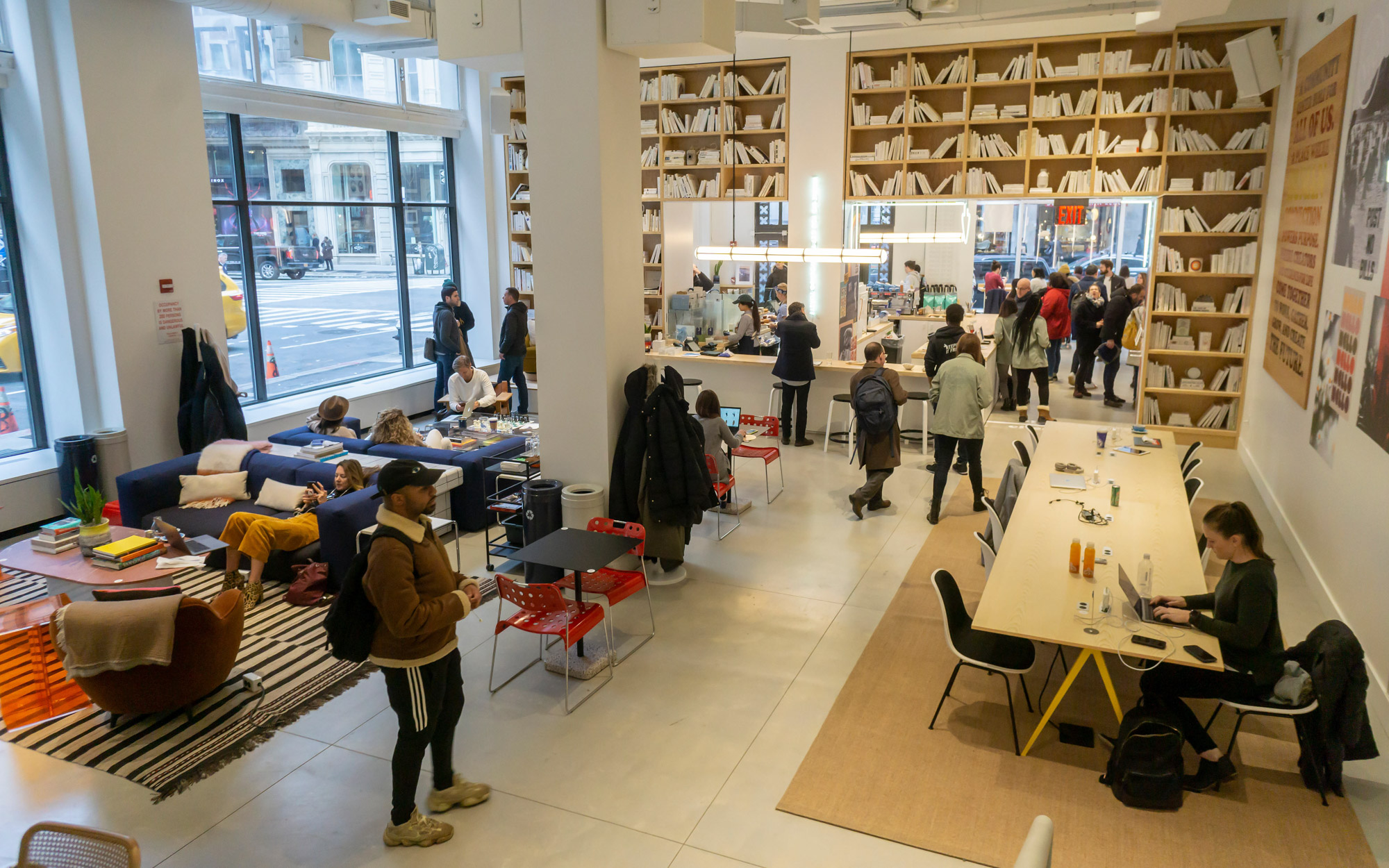The crucial role of coffee in workplace wellness
Hayley Osborne chats with the co-founder of the Workplace Wellness Company, Kevin Burnham, to find out how a small cup of coffee can make the world of difference to staff wellbeing.
From meditation sessions and lunchtime yoga to team walks and spontaneous days off, workplace wellness is all the rage.
Broadly defined as activities, programmes, and policies designed to support healthy behaviour in the workplace, it has become an increasing priority for companies.
The annual CIPD survey found that 69% of respondents sometimes feel miserable, exhausted, lonely and under excessive pressure at work.
A focus on workplace wellness can help turn this around and, ultimately, contribute to healthier, better-performing staff, higher productivity and morale.
Apart from physical activities and benefits, workplace wellness can also include more intangible initiatives. These can include greater flexibility to deal with work-life balance, enforcing zero-tolerance policies for workplace harassment or providing workers with training.
Kevin Burnham, co-founder of the Workplace Wellness Company agrees: “I believe that the health of a business is equal to the health of its people”.
“The notion that you can be truly productive and fulfilled at work whilst also being worried about your health is in my opinion foolhardy.”
Even with mounting evidence, he notes that many employers still do not consider the health and well-being of their staff or how this has a direct impact on their business.

The power of coffee
A 2021 survey featured in the research paper Coffee in the workplace: a social break or performance enhancer? found that almost half of respondents worked more than eight hours a day, 40% accumulated different professional activities and 50% worked night shifts.
As such, coffee was central to their work routine, not only to help them stay awake and be more productive but also as a social release.
Coffee, and to a larger extent coffee breaks, allowed them an opportunity to decompress, move around, chat with colleagues and bounce ideas off one another. All of which, as the paper notes “may have a positive impact on both intellectual and relational performance”.
While this may all seem more beneficial to employees than employers, research by McKinsey & Company indicates that 85% of employees feel that quality coffee increases productivity, which, of course, has a direct impact on a company’s bottom line.
In addition, a survey of UK employees also found that more than 80% of those who drink higher-quality coffee at work intend to stay at their company for at least the next two years.
A big boon for any firm that wants to keep its employee turnover rate low.
Coffee also brings a company together as a whole. An employer who provides wellness benefits, such as quality coffee to staff, is more likely to be respected by employees.
This small act fosters a sense of kinship in the workplace.
“It’s a sociable and wellness-supporting addition to a productive and fun work environment,” Kevin says.
Of course, coffee also offers other physical benefits aside from keeping individuals from nodding off at their desks.
As Kevin notes: “Recent studies have proven what many of us have suspected for a long time; that apart from caffeine helping you stay alert, quality coffee also provides us with many health-promoting compounds.
“Research suggests that those who drink three to five cups of coffee a day live longer than those who drink less or none at all. This is just one reason to support the provision of great coffee at work.”
Other health benefits of consuming coffee include improved asthma control and a lower risk for liver disease and cancer. While other studies have found that it may also help prevent type two diabetes.

The modern-day “coffee canteen”
“From a purely practical perspective, providing great coffee at work saves hours of lost productivity,” Kevin says.
He is right, of course. A recent survey by Alterra Coffee Roasters found that 65% of office workers drink an average of three cups of coffee per day.
If each person had to leave the office every time they wanted a quality cup of coffee, productivity would certainly decrease in the long run.
Indeed, companies are concerned with the cost of such a perk and not all can afford to have an in-house barista.
But, thanks to innovative technology, they don’t have to. Today, there are a number of options between a highly skilled barista and a tin of instant coffee.
Contemporary superautomatic coffee machines can serve up espressos (and many other coffee drinks) that are on par with a café.
As Nick Mabey of Volcano Coffee Works noted in a recent New Ground interview, quality coffee is now available at the click of a button.
“Advanced and accessible bean-to-cup technology is probably what changed the game for all of us,” he explains. “The bean-to-cup machine allowed for what people perceived as ‘barista-like coffee’ in terms of espresso, and the flavour and the texture that it offers. We owe that technology more than people think.”
One such superautomatic coffee machine is the Carimali SilverAce. A popular choice for offices and other establishments, the SilverAce delivers quality coffee time and time again.
Not only is this cost effective for offices, but it can also help buoy staff’s morale. And you can’t put a price on that.








